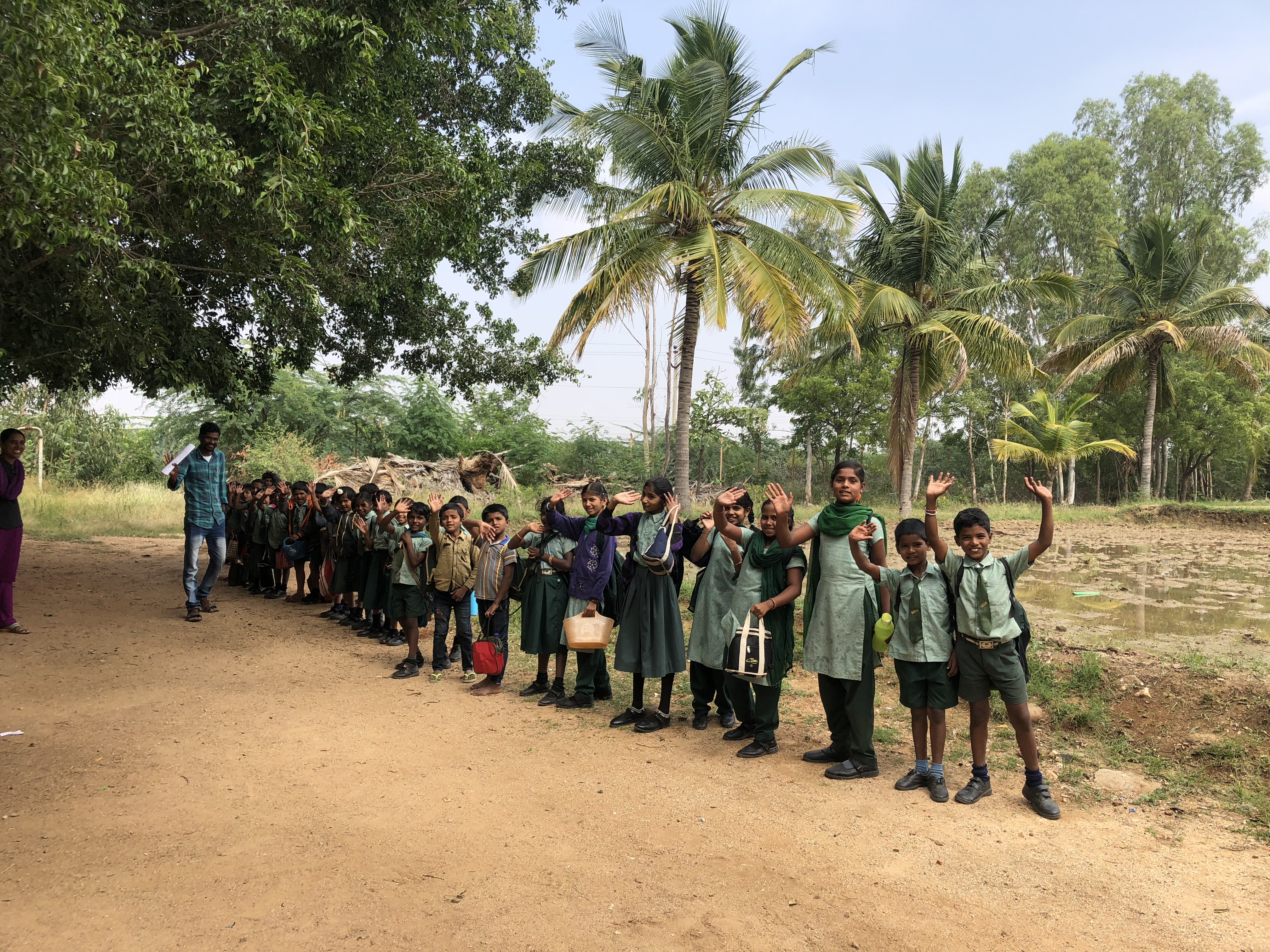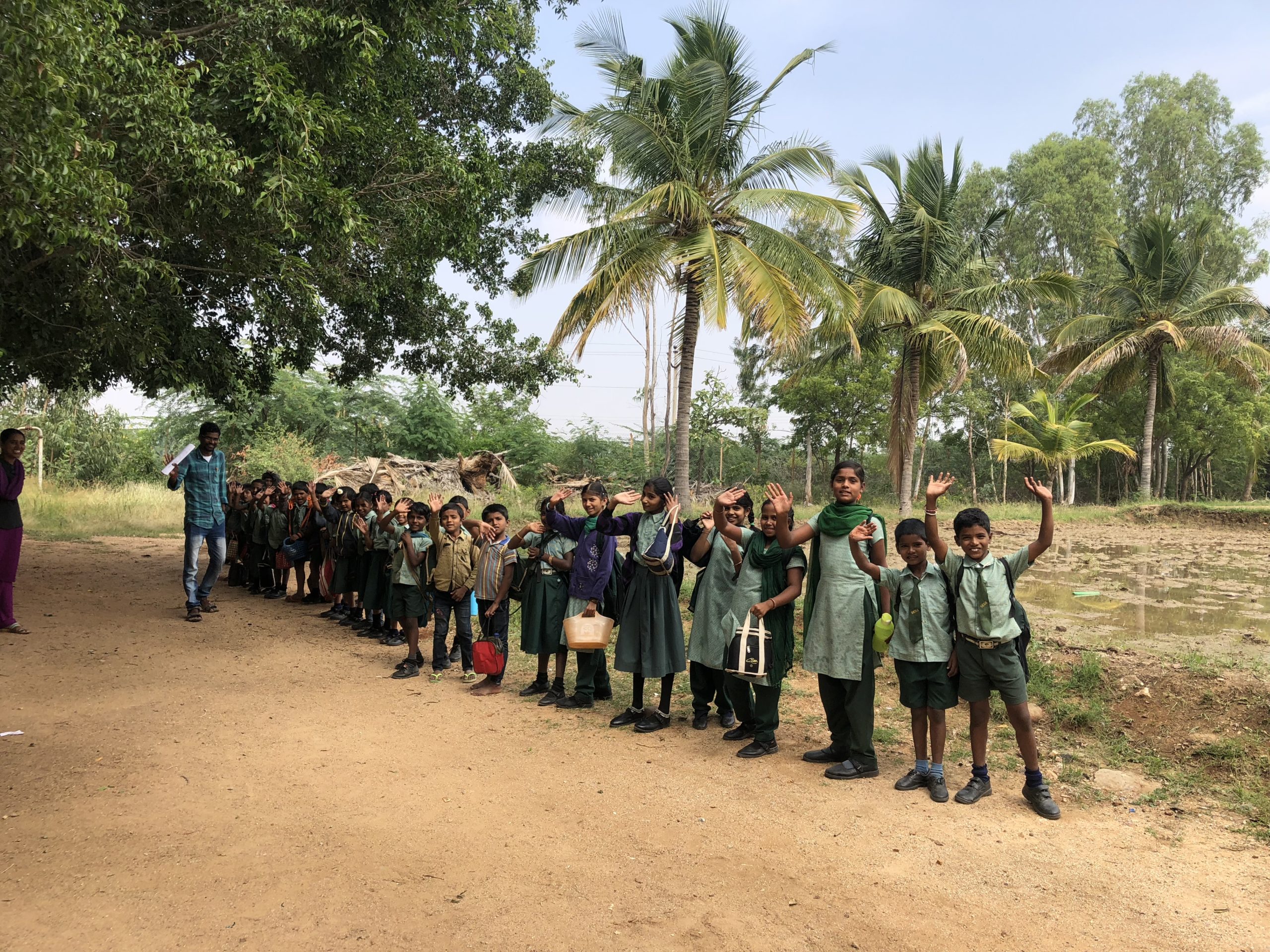India – week 7: Gaining Perspective and Saying Goodbye
I’m writing this blog as we’re on the plane to Jaipur, where our road trip through Rajasthan will start tomorrow (it’s Sunday now). We’ll only be in India for another two weeks and we’re both very excited to explore Rajasthan, Agra and Delhi.
Our SEDS adventure has officially come to an end. I still feel very torn; on the one hand I’m excited to be traveling but on the other hand there’s still so much to do at SEDS and I feel like I’m not ready yet to leave it all behind. Time has flown; it doesn’t feel like that long ago that we first arrived in Bangalore. Then again, seven weeks isn’t that long and when every day brings a new adventure, new drama or another challenge, it’s not that surprising that seven weeks have passed by in the blink of an eye.
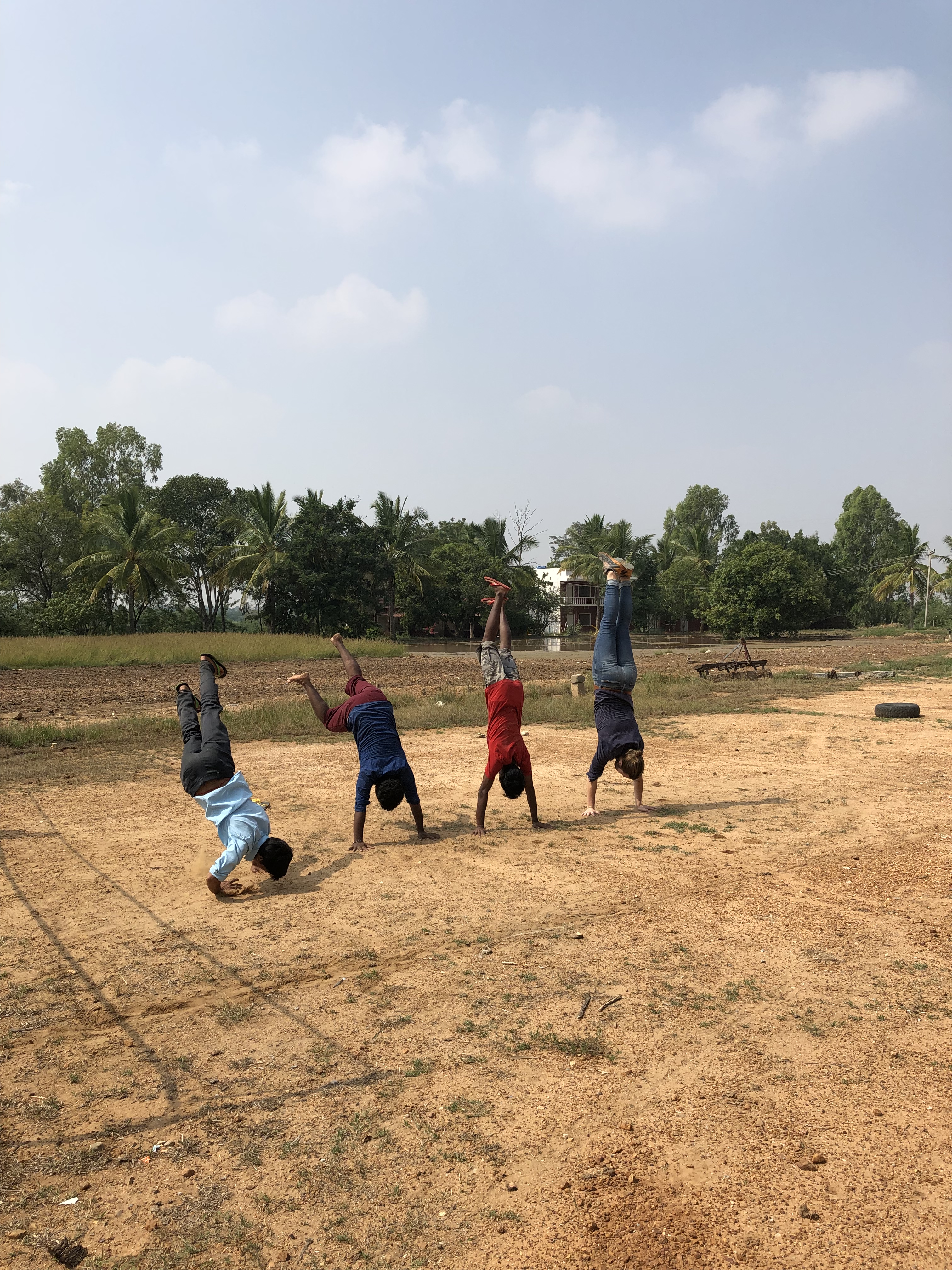
This week was marked by wrapping up everything that we started since we arrived at SEDS. For Kirra that meant finishing up her work in the office and featuring the SEDS property on Airbnb (more on that in a next blog), for me it meant finishing the new SEDS website (sedsngo.org). For us both it meant wrapping up the photo art projects with the kids at the school, and teaching the remaining three English classes to the teachers.
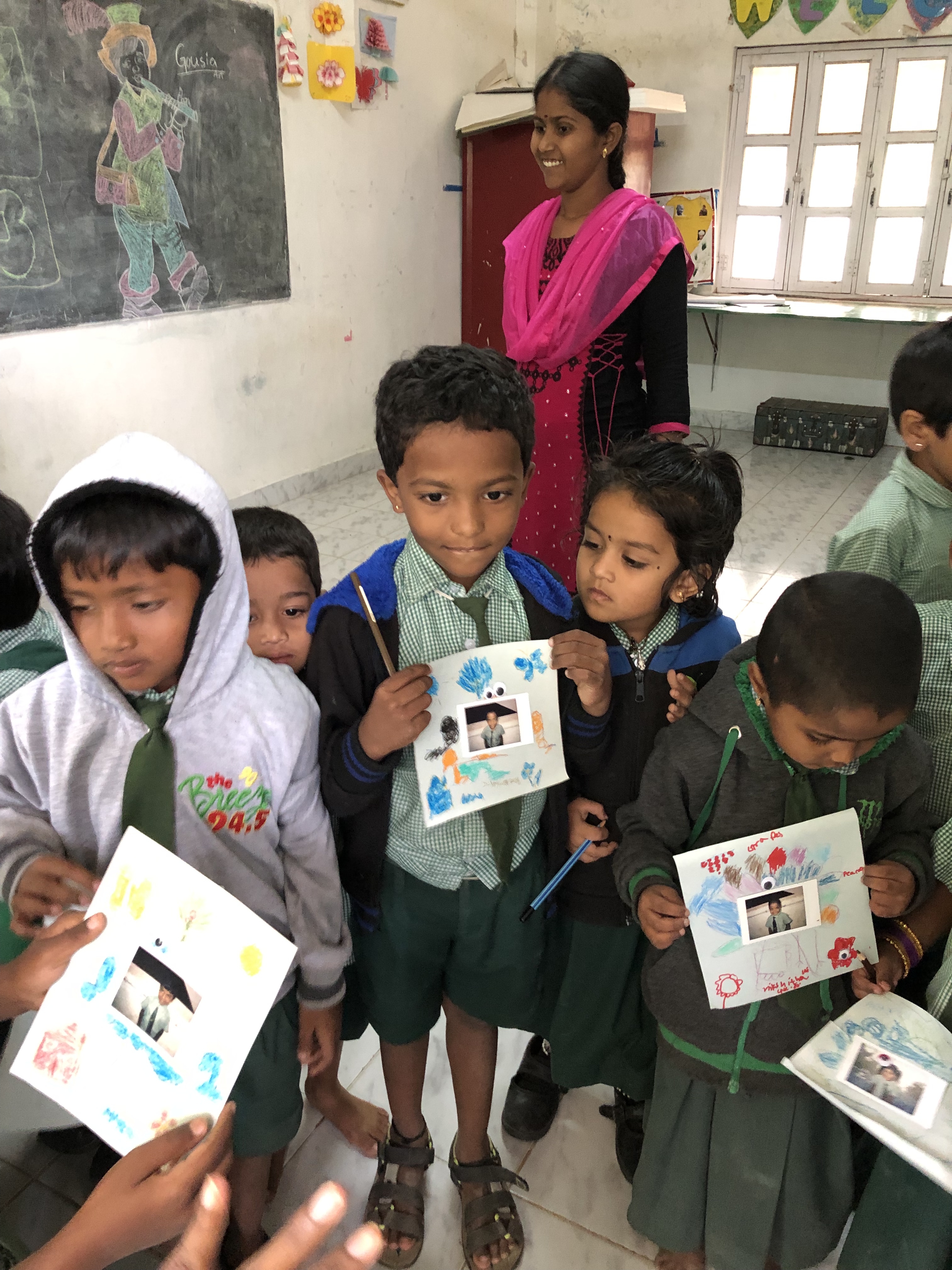
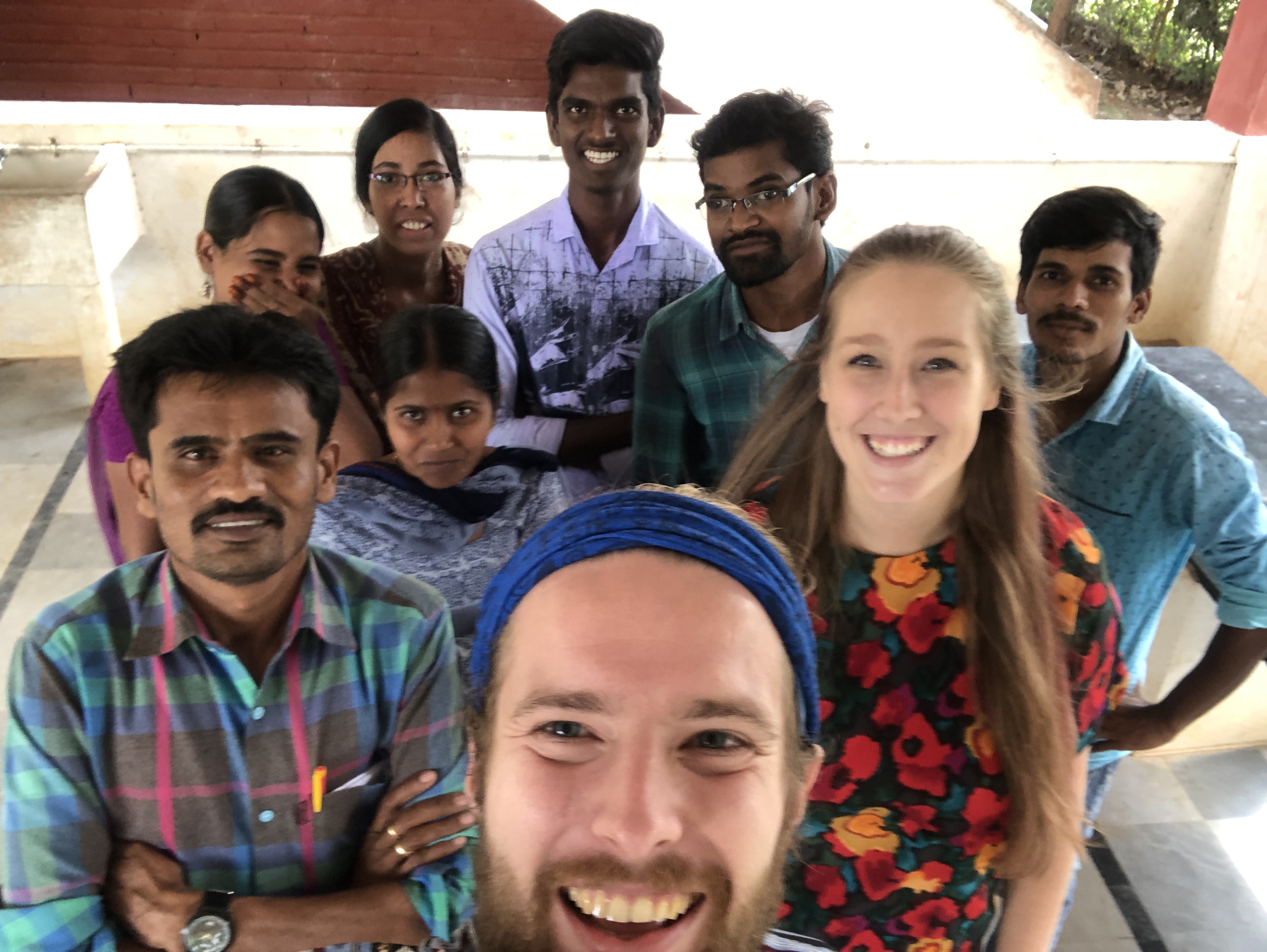
At the start of the week, Rohith took me out to two villages to talk with the villagers about their needs, their ambitions and the challenges that they face on a daily basis. There was a lot of interesting stuff to be learned from these experiences. For example, the villagers all take an individual first approach. It’s only when the families’ needs, like food, water and education, are met that they start thinking about cooperating with their fellow villagers. Which is both understandable and inefficient, as cooperation is so important in these though areas where everyone struggles to get through the year. The first village was mainly comprised of dairy farmers, with about 70 families who all own a herd of cows. Everyday, the families go out with their cows to the fields, and milk is collectively sold at the end of the day. Each family then gets paid according to the amount of milk they’ve put in. This system works, but what Rohith and I were wondering about is why the villagers don’t combine their cow herds and send 10 people out to the fields instead of about 70. Because that way, you have 60 people that could do something else, like planting and maintaining fruit trees which are a sustainable and long term solution to having a consistent source of food and vitamins. But the farmers raised their concerns about this approach, which basically boils down to: “but my cows are better and produce more milk so why should I share the proceedings of those cows with the rest?”, failing to even consider the long term benefits of having an extra 60 people available to help out in and around the village. In the second village, we encountered the same individualistic way of thinking. Upon talking about this with Manil after we’d come back, she remarked: “it’s still the same way of thinking as it was forty years ago, but we have to try”. She shared the story about how Rajen would go out to villages and talked to the villagers until early in the morning, trying to convince them that there are better ways of living in a village through cooperation, but the villagers today are as stubborn as they were forty years ago. But however frustrating, Manil’s message resonated with me; “we have to try”. Because if even the people that want to make a difference stop trying, no one will.
It was party time on Wednesday, as Rajen was celebrating his birthday! In fact, it was party week as Manil was also celebrating her birthday on Saturday. A lot of people came over to SEDS to celebrate the birthdays of the SEDS’ founders and Kirra and I spent some hours in the kitchen making cheesecakes, hedgehog and jelly and lemon slices. What was particularly fun and insightful was that Rajen’s old pals came over. Before Rajen and Manil founded SEDS, Rajen and his friends, just after university, decided to go against the plan of getting a proper job after university and instead set up camp in Andhra Pradesh, the region where SEDS is located. With limited resources they laid the foundations over forty years ago of what later would become SEDS, amongst other organizations. These guys have been through thick and thin together and you can tell that by the way they interact with each other. All of them are so kind and friendly and I feel very grateful for having gotten the chance to meet them just before we left.
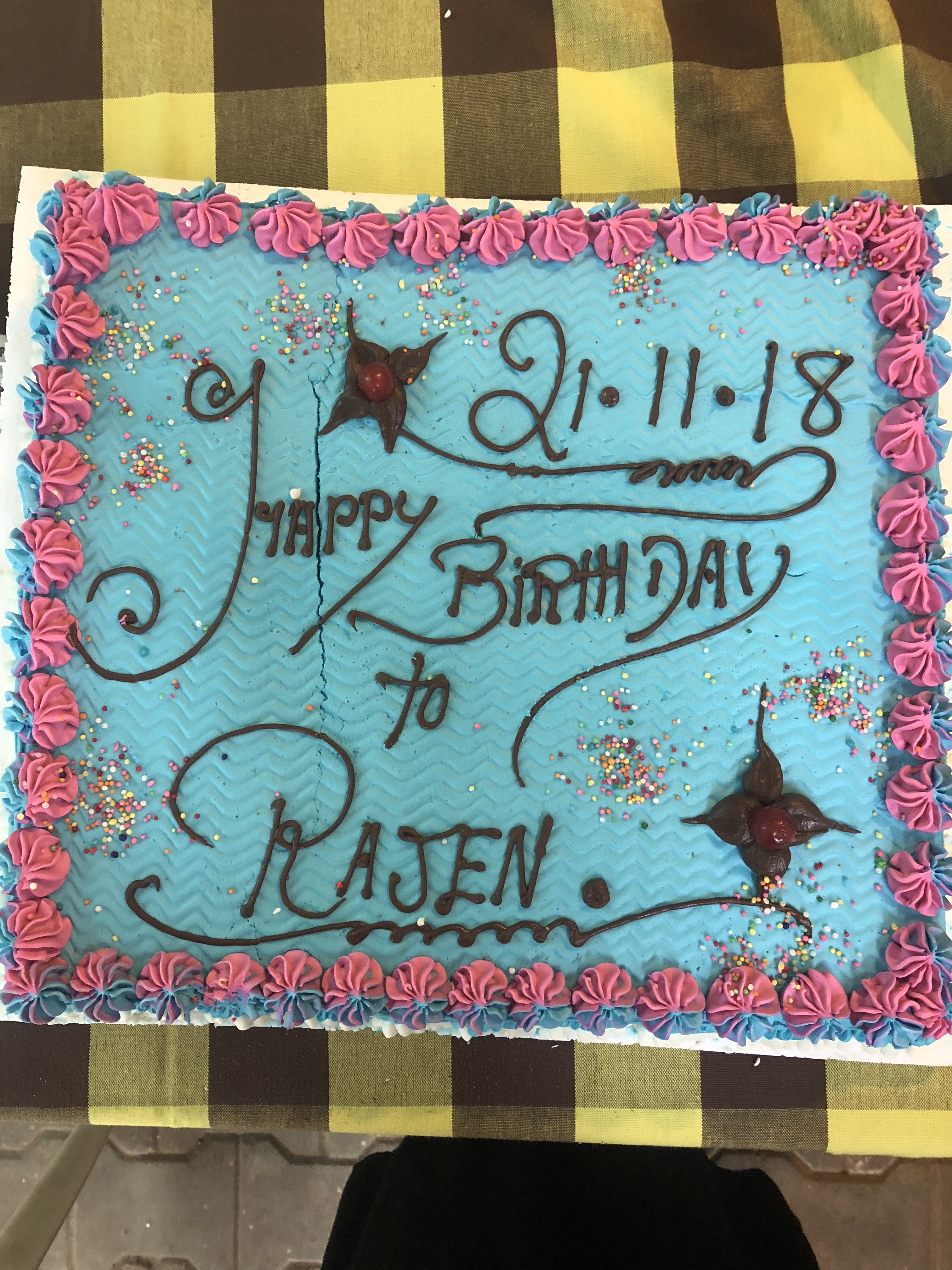
I have left SEDS with a new, although not settled yet, perspective on making a difference, helping other people and happiness. I’m still reflecting and trying to incorporate the things I’ve learned into a framework, or a vision if you will, on how to do good and what it means to want to be happy. I’ve read multiple books on these subjects during my stay at SEDS as well, so my head is filled with thoughts and ideas on these subjects. My main takeaway at the moment is that I feel like even though man’s environment might be radically different, their needs, struggles and complaints are of the same level, which makes me suspect that happiness is not to be found in solving those issues and should instead be found somewhere else. Or maybe it shouldn’t be found at all; maybe happiness is only experienced when you stop pursuing it all together.
Anyway, our adventure in the south of India has come to an end, but we still have just over two weeks to explore the north. More on that next week!
